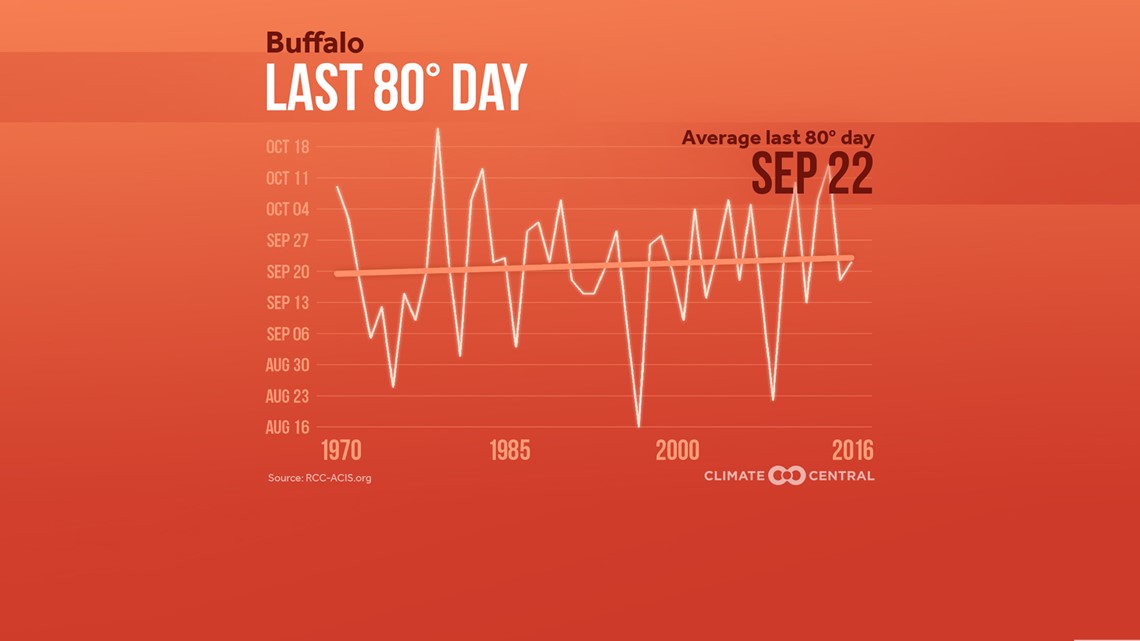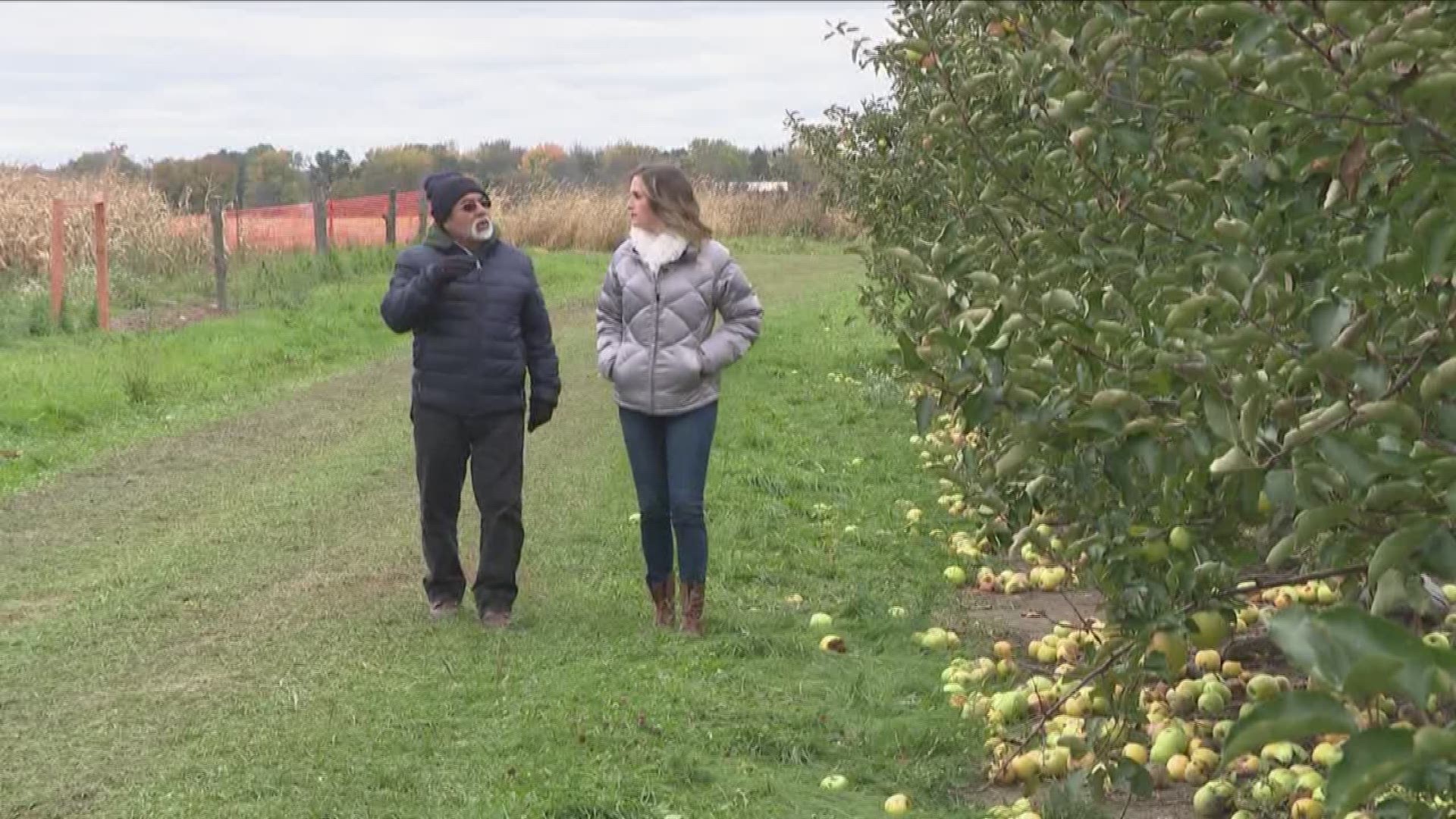Summer 2018 was a hot one. Actually, May through September will go down as the hottest five-month period for Buffalo since records began in the 1800s. May reached a monthly record high and September wound up being the sixth warmest in Buffalo's history. This past July 4th was also the hottest Independence Day for Buffalo with a scorching high of 93 degrees.
But summer 2018 isn't an outlier. It's part of a trend of not just increasingly warmer summers, but longer summers too. Data going back to 1970 show that Buffalo's latest 80 degrees days are getting later. This year the airport measured a high of 80 degrees as late as October 10th.


Fans of warmer weather may be glad to hear this news, and many more may not even notice that these changes have been happening. But one of Western New York's biggest agriculture industries has started to feel the effects of our warming summers.
Oscar Vizcarra has been growing apples at Becker Farms in Niagara County for nearly 40 years. He says the recent string of summers with hotter afternoons and drier conditions have produced an earlier crop than normal. That's a problem because most fall fun seekers want to wait for classic "apple picking weather". By then, the apples are past their peak. He also says that apples haven't had as much of that enticing red color to them because nighttime temperatures haven't been cool enough. Lack of rain can also lead to a smaller crop overall.
Vizcarra says he and his fellow farmers are observing the seasonal patterns and making adjustments as needed. He hopes these trends don't continue in the long term because they will ultimately hurt his bottom line.
Apple farming is just one example of how what can seem like a small change to us is actually a very concerning situation going forward. Larger impacts to everyday life may soon become more apparent if the current climate trends continue in the coming years.

